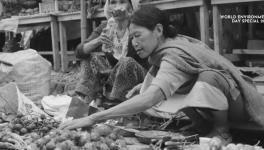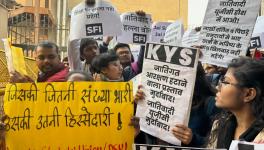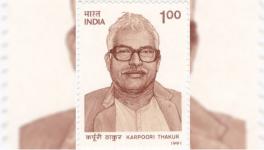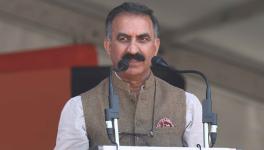Reservations for Naga Women in Urban Local Bodies is a Must
Like his predecessor, the newly appointed Chief Minister of Nagaland Shürhozelie Liezietsu will have to listen to the voices of Naga women who have been fighting for representation in urban local bodies. Despite pressure from traditional groups dominated by men, the Naga women have raised the demand to be represented in responsible positions as per the Constitution. The tense situation in the last two months has made it clear that affirmative action to empower women still is a necessity in Nagaland. This is clear when we look at the lack of representation of women in the Legislative Assembly. Since the first election to the State Legislative Assembly conducted in 1964 to the latest one held in 2013, not a single woman has made it to the state legislature in five decades.
Upon pressure from powerful Naga tribal groups demanding his resignation for standing by the women's reservation bill, Chief Minister T. R. Zeliang was forced to step down on 20 February 2017 and Shürhozelie Liezietsu replaced him two days later. In April 2016, the Supreme Court had directed the state government to conduct elections in the municipal bodies with 33% reservation for women. Zeliang’s government upheld this ruling. This infuriated the tribal bodies in Nagaland. Under the Joint Action Committee (JCC), bandhs were called opposing the February 1 elections. This resulted in the death of two protestors on the night of 31 January. Now, how will 81-year old Liezietsu settle issues with powerful tribal chiefs and bring peace in Nagaland without compromising on the reservation for women?
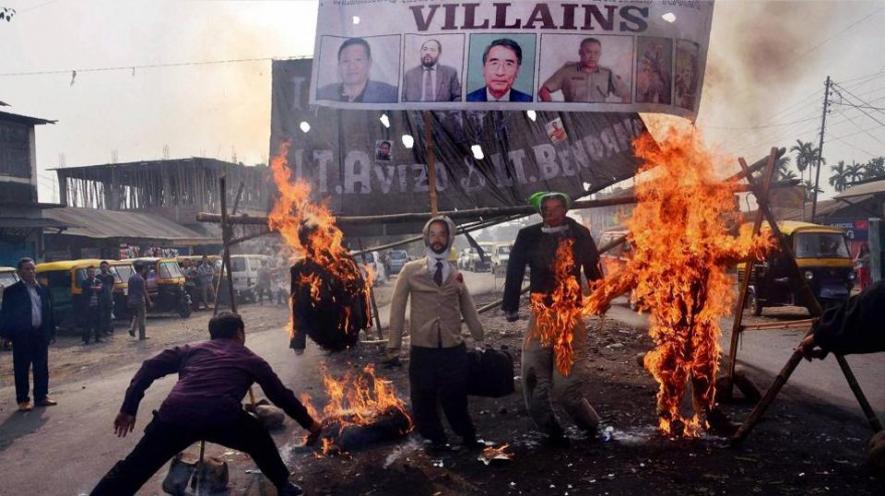
Image Courtesy: PTI
The strongest argument that JCC, National Tribal Action Committee (NTAC) and other such groups are making against 33% reservation for women in urban local bodies is that this goes against the Naga "customs". The primary point they raise is that this reservation for women infringes on the special provision guaranteed to Naga people under Article 371 A of the Constitution of India. The provisions of the article read,
“a) no Act of Parliament in respect of—
(i) religious or social practices of the Nagas,
(ii) Naga customary law and procedure,
(iii) administration of civil and criminal justice involving decisions according to Naga customary law,
(iv) ownership and transfer of land and its resources,
shall apply to the State of Nagaland unless the Legislative Assembly of Nagaland by a resolution so decides”
On the one hand, we have male-centred tribal groups holding onto Naga customs and, on the other, we have Naga women invoking the Constitution while fighting the age old struggle against patriarchy.
Monalisa Changkija, Editor, Nagaland Page says that the municipal bodies, for which women are fighting for reservation, are not “Naga traditional institutions”. She insists that even the idea of the Legislative Assembly is not customary. This implies that 33% reservation for women should also be implemented for Ministers of Legislative Assembly. Customs should not be a blockade for affirmative action for women in a patriarchal society. In a country like India, the fight for the right to education, employment and land goes hand in hand with the efforts to ensure adequate representation of women in decision making bodies.
While, the Constitution is being invoked to assert the special provisions for Naga customs, the Nagaland Mother’s Association and other groups are demanding reservation for women in urban local bodies citing the Constitution of India. Article 243 D of the Constitution of India reads,
“The offices of the Chairpersons in the Panchayats at the village or any other level shall be reserved for the Scheduled Castes, the Scheduled Tribes and women in such manner as the Legislature of a State may, by law, provide… Provided further that not less than one-third of the total number of offices of Chairpersons in the Panchayats at each level shall be reserved for women.”
RoseMary Dzuvichu, Director of Women Studies Centre, Nagaland University, and advisor to Naga Mothers’ Association at a discussion on Nagaland, Women and Rights said that as long as Nagas are under the Indian state, we (Naga Women) want what the Indian Constitution provides for us.
The Constitution states that all are equal in front of the law, but NTAC and other such groups demanded the resignation of T. R. Zeliang for not listening to the “peoples” voice. Patricia Mukhim, Editor, Shillong TImes, writes that “the word “people” is bandied around carelessly by groups that seek to promote an exclusively male agenda…”.
The state has not seen elections to the local bodies for the last 16 years because the powerful tribal bodies led by Naga men fear their powers will be reduced. In 2006, under the pressure of these groups, a resolution was passed in the state assembly to call off polls to municipal bodies. The Naga Mother’s Association appealed to the Supreme Court to direct the state government to implement reservation for women in the urban local bodies. Consequently, Nagaland Assembly’s resolution to hold elections with reservations for women has lead to volatile protests from powerful tribal bodies.
Traditional tribal groups that deny reservation for women, time and again, have proven that Nagaland is also a patriarchal society. This gives more reason for affirmative actions to empower women. The newly appointed Chief Minister needs to settle ties with the powerful tribal groups and immediately hold local body elections with reservation for women in urban constituencies.
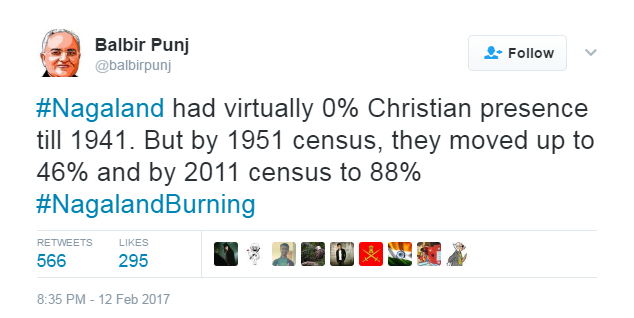
It is clear that the political ruling class at the centre will use this polarisation to make inroads into Nagaland and other north-eastern states. Recently, Balbir Punj, MP of Rajya Sabha and Vice-President of BJP, posted a powerfully distorted lie on Twitter. Today, with the politics of polarisation on the rise, the struggle for women's empowerment in Nagaland cannot be seen as separate from the fight against the communal, corporatist state.
Disclaimer: The views expressed here are the author's personal views, and do not necessarily represent the views of Newsclick.
Get the latest reports & analysis with people's perspective on Protests, movements & deep analytical videos, discussions of the current affairs in your Telegram app. Subscribe to NewsClick's Telegram channel & get Real-Time updates on stories, as they get published on our website.













